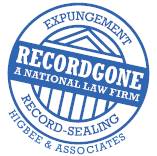A recent decision by a California appellate court has created an extraordinary opportunity for those convicted of violating Penal Code section 288(a) to terminate their requirement to register pursuant to Penal Code section 290. While it is unknown how long this opportunity will last, the ruling is welcome news for those whose lives are negatively impacted by the registration requirement imposed on 288(a) offenders in 1997.
On November 15, 2013, in People v. Tirey, the California Fourth District Court of Appeal ruled that current state law, which allows a defendant convicted of a sex offense against a child under the age of 10 to obtain a Certificate of Rehabilitation (Penal Code section 4852.01) while denying that same opportunity to one convicted of molesting a child under the age of 14, is unconstitutional. The holding makes offenders convicted of Penal Code section 288(a) eligible for a Certificate and to terminate their registration requirement.
Penal Code section 288(a) prohibits lewd or lascivious acts with a child who is under the age of 14 years, while section 288.7 prohibits sexual intercourse, sodomy, oral copulation or sexual penetration with a child 10 years of age or younger. Under the current statutory scheme, persons convicted of violating section 288.7 are eligible to obtain a Certificate of Rehabilitation under section 4852.01 and relief from the registration requirement under section 290.5, while persons convicted of violating section 288(a) are not eligible and therefore remain subject to a lifetime sex offender registration requirement.
CALIFORNIA COURT OF APPEALS FINDS VIOLATION OF EQUAL PROTECTION IN TIREY CASE
The Court of Appeal held that there is no rational basis for the unequal treatment of these two similarly situated groups of sex offenders. The Court in its published opinion presented three possible remedies: (1) completely throw out the current statutory scheme and allow all sex offenders to apply for the certificate, (2) add Section 288.7 offenders to the list of those who cannot apply, or (3) add Section 288(a) offenders to the list of those who can apply for a certificate of rehabilitation.
The legislature could choose again require registration for 288(a) offenders by exercising any of the three options the court discussed. If the and when the legislature acts on this issue is anybody’s guess. In the meantime, current Penal Code 288(a) offenders are eligible to apply for a Certificate of Rehabilitation, but the court’s opinion emphasizes that the legislature may wish to amend sections 4852.01 and 290.5 to treat section 288(a) offenders and section 288.7 offenders equally.
There are many questions that remain unanswered. If an when will the legislature modify California law? Will the the appellate decision be appealed to the Supreme Court, and if so, what will the outcome be? What happens if the law does change after someone has their registration requirement terminated?
The Tirey case is now back to the trial court where the judge will review the request for a certificate of rehabilitation on the merits of the case. If the court finds that Tirey is rehabilitated, a certificate of rehabilitation will be granted and the Department of Justice will be instructed to terminate Tirey’s registration requirement.
Those prior offenders who were convicted of section 288(a), who wish to apply for a certificate of rehabilitation, are urged to seek that relief immediately as we wait on the legislature to act on this matter. It is unclear at this time how long this relief will remain available. Therefore, we strongly encourage people to act quickly and take advantage of this opportunity now.
Watch Video About Changes to CA Registration Law Affecting 288(a) and the Tirey case




15 Responses to Court Ruling Allows Opportunity for Individuals Convicted of 288(a) To Terminate 290 Registration